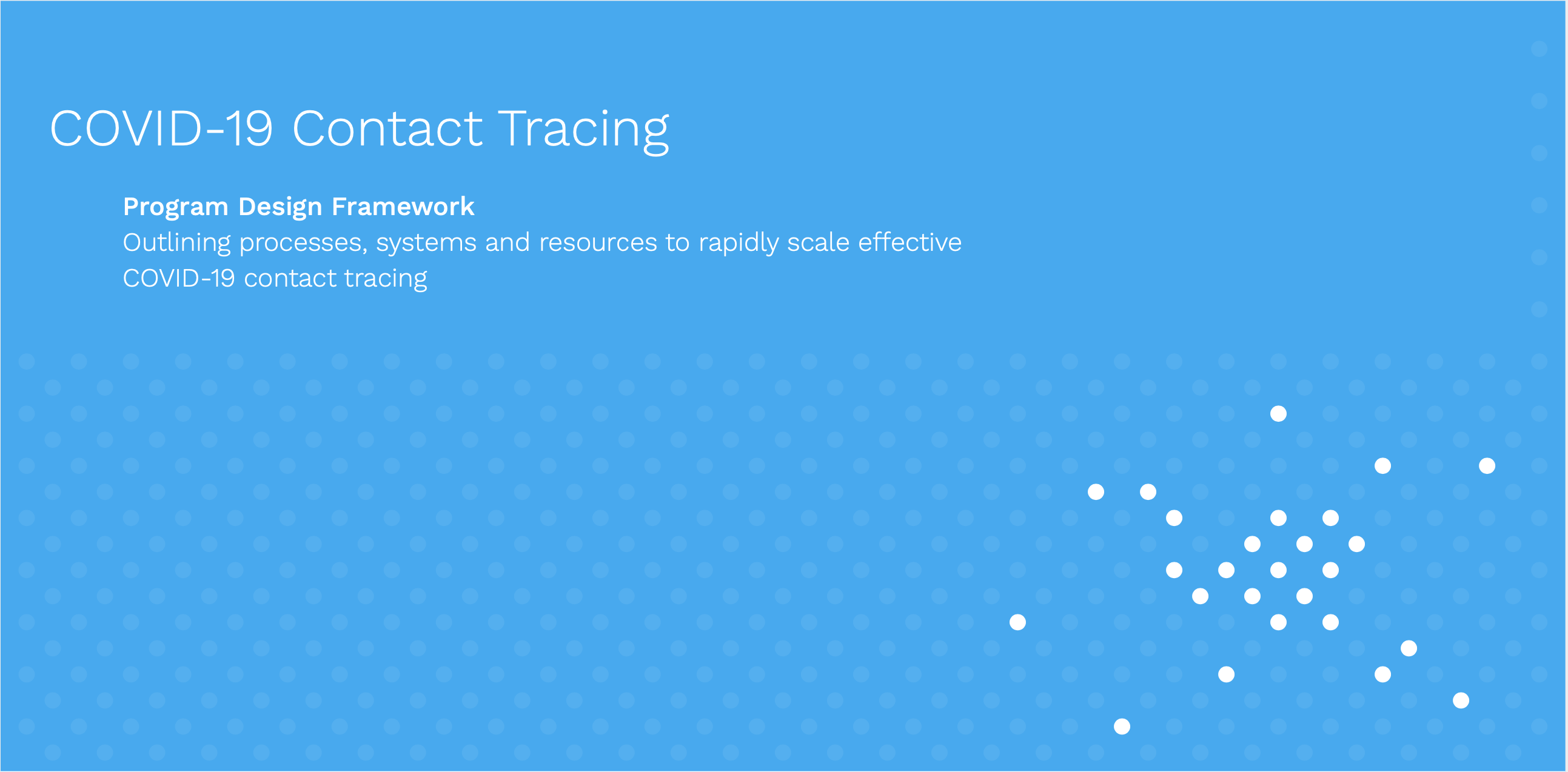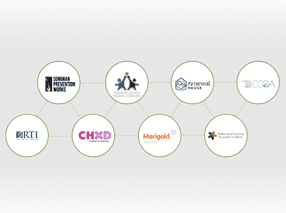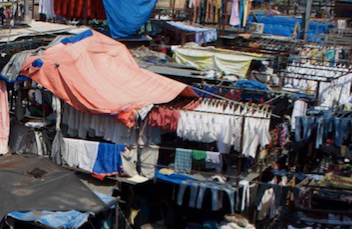FROM TED PRIZE TO COLLABORATION NETWORK
Our work in Southeast Asia began in 2007, following Larry Brilliant’s TED prize in 2006, with the support of founding grants from Google.org and the Rockefeller Foundation. These grants were originally intended to support the design and development of information communication technologies (ICT) for better surveillance and response to disease outbreaks in the Mekong Sub-region of Southeast Asia – a hot zone for emerging infectious diseases. Our purpose in coming to Southeast Asia was to serve as a developmental partner of the Mekong Basin Disease Surveillance Network (MBDS). Landscaping trips to multiple countries in the region were undertaken before we decided to base our operations in Phnom Penh, Cambodia. We chose Cambodia to be close to the Cambodian CDC, the lead for ICT strategy for the MBDS Network.
IF YOU DON’T GO, YOU DON’T KNOW
We approached this exciting and important work with the mindset to listen, observe, and learn before ever considering what sorts of technologies needed to be developed. We knew it was necessary to build technologies for early detection and early response based on requirements derived from real people doing real work. We needed actual user stories from the field.
The early field analyses quickly revealed deep gaps between the needs of different stakeholders, depending on their locations and work functions. Ministry of Health officials told us they needed accurate reports in order to make appropriate plans to respond to disease outbreaks. Field workers at the point of disease outbreaks (who were often overwhelmed with too many tasks already) were interested in making their work lives more efficient and therefore more productive. In contrast, individuals from remote villages were asking why they should voluntarily report events, such as their livestock becoming ill, when having their livestock destroyed would put them at economic and psychological risk.
One of the countries we researched had recently been experiencing severe bird flu outbreaks. We were told by government officials that a national program to incentivize voluntary reporting by villagers of sudden unexpected deaths of their chickens was successful at ensuring early detection of the spread of the deadly avian influenza virus. When we visited one of the villages to see the conditions of the poultry farms, one of the villagers (when out of earshot of the government officials) confided in us that despite his understanding of the benefit of early reporting to public health that he and others in the village were reluctant to make such reports. The villager knew that his reports would lead to the culling of entire flocks. He told us that loss of his or his neighbor’s flocks would severely jeopardize the livelihoods of the community and possibly lead to his social isolation, or worse. Another farmer, pointing to his barren poultry farm, had tens of thousands of chickens destroyed following a neighbor’s report of the death of several animals. The owner of the farm told us, “I don’t know if and when I will be able to restock my farm and how I will be able to support my family”. He expressed anger towards his life long neighbor for placing him in such a terrible economic position. Putting one’s or others’ livelihood and personal security at risk, evidently trumped the knowledge that culling the flocks was the right measure to contain further outbreaks of bird flu.
It became clear to us that there was no single technology that could solve these fundamentally human problems. Our challenge became clear: we needed to prioritize creating a local culture of innovation and collaboration over simply building technology tools.
CULTURE & COLLABORATION FIRST, TECHNOLOGY SECOND
Meaningful collaboration is difficult at a local community level where incentives are often misaligned–as any agency which has worked in resource limited settings can attest.
We found very little by way of functional examples to guide us on best practices in this regard. New models for developing knowledge and skills of local talent to stimulate local innovation were desperately needed.
It became clear that in order to establish a local culture of innovation we needed to create a center where this could happen. The iLab SEA is our response to the critical gaps we identified. The unique environment was developed to serve the region by offering human-centered design and development of technologies that support local innovation and collaboration.
SETTING UP THE iLAB SOUTHEAST ASIA
We imagined a structure that could serve as a neutral ground for multi-stake holder engagement in developing solutions to challenges being faced by local communities. We knew we had to hire staff who deeply understood the context, customs, language and local power dynamics that affected the targeted communities. By combining their context appropriate knowledge with InSTEDD’s international support, we maximized this high impact combination to help solve local, national and regional challenges. InSTEDD would provide on-site technical training to help develop the skills and knowledge needed to design useful tools that would extend beyond the life of a single project. The iLab would commit to only developing tools that were high quality, low cost and scalable. We only build systems that do not require heavy investments in new hardware or software. We only work with partners who can provide regular feedback so we can improve future iterations.
TRIPLE BOTTOM LINE: CAPACITY, IMPACT, SUSTAINABILITY
The iLab model is focused on a triple bottom line: building human capacity, creating social impact, and achieving financial sustainability. Balancing multiple bottom lines is challenging, but we are confident that a commitment to this is the best way towards realization of our vision.
Whether through the iLab SEA’s achievement in improving management of patients with TB or through the quicker detection and treatment of malaria infections or the development of national health facility registries, the lessons we’ve learned on this journey can and are being applied globally.
Beyond the impact of our projects, the iLab SEA team has grown into regional leaders in advancing technological innovation for social good. The team actively participates in community building activities such as regional BarCamps and Dev Camps as well as gives presentations at both regional and international conferences. (Click here to see Channe Suy’s presentation at TEDxPhnom Penh.)
We have been privileged to participate in growing this idea and have invested in incubating the future leaders working at the intersection of technology and social impact. We believe we have demonstrated a practical way to honor the old maxim of “thinking globally while acting locally”.
Check out the new iLab Southeast Asia Website here: www.ilabsoutheastasia.org
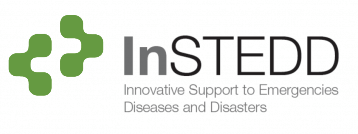

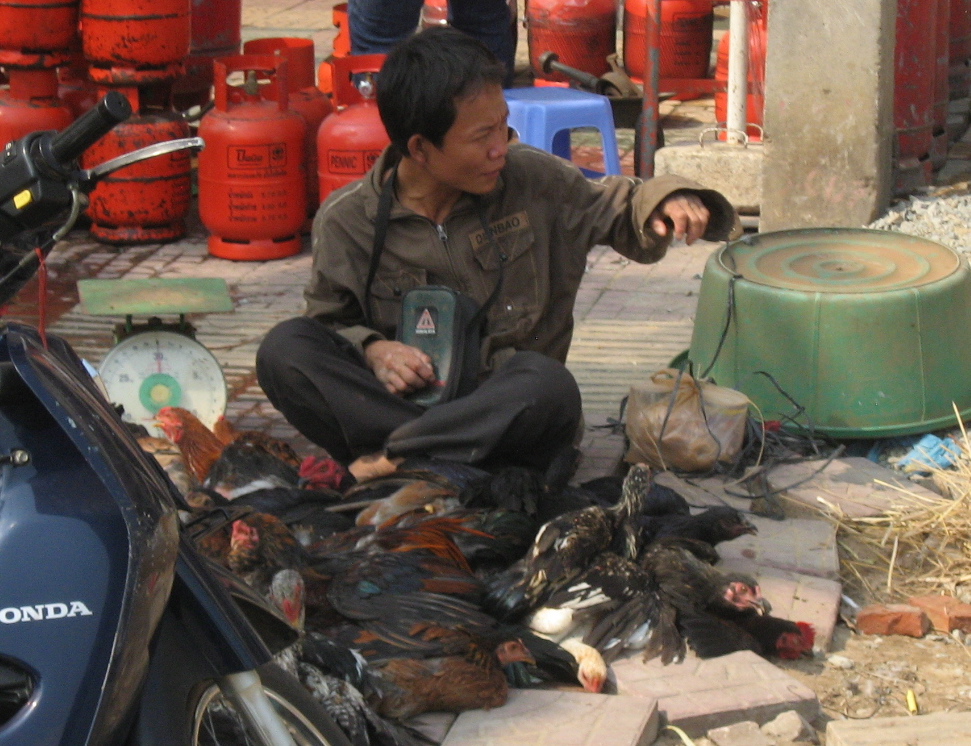 One of the countries we researched had recently been experiencing severe bird flu outbreaks. We were told by government officials that a national program to incentivize voluntary reporting by villagers of sudden unexpected deaths of their chickens was successful at ensuring early detection of the spread of the deadly avian influenza virus. When we visited one of the villages to see the conditions of the poultry farms, one of the villagers (when out of earshot of the government officials) confided in us that despite his understanding of the benefit of early reporting to public health that he and others in the village were reluctant to make such reports. The villager knew that his reports would lead to the culling of entire flocks. He told us that loss of his or his neighbor’s flocks would severely jeopardize the livelihoods of the community and possibly lead to his social isolation, or worse. Another farmer, pointing to his barren poultry farm, had tens of thousands of chickens destroyed following a neighbor’s report of the death of several animals. The owner of the farm told us, “I don’t know if and when I will be able to restock my farm and how I will be able to support my family”. He expressed anger towards his life long neighbor for placing him in such a terrible economic position. Putting one’s or others’ livelihood and personal security at risk, evidently trumped the knowledge that culling the flocks was the right measure to contain further outbreaks of bird flu.
One of the countries we researched had recently been experiencing severe bird flu outbreaks. We were told by government officials that a national program to incentivize voluntary reporting by villagers of sudden unexpected deaths of their chickens was successful at ensuring early detection of the spread of the deadly avian influenza virus. When we visited one of the villages to see the conditions of the poultry farms, one of the villagers (when out of earshot of the government officials) confided in us that despite his understanding of the benefit of early reporting to public health that he and others in the village were reluctant to make such reports. The villager knew that his reports would lead to the culling of entire flocks. He told us that loss of his or his neighbor’s flocks would severely jeopardize the livelihoods of the community and possibly lead to his social isolation, or worse. Another farmer, pointing to his barren poultry farm, had tens of thousands of chickens destroyed following a neighbor’s report of the death of several animals. The owner of the farm told us, “I don’t know if and when I will be able to restock my farm and how I will be able to support my family”. He expressed anger towards his life long neighbor for placing him in such a terrible economic position. Putting one’s or others’ livelihood and personal security at risk, evidently trumped the knowledge that culling the flocks was the right measure to contain further outbreaks of bird flu.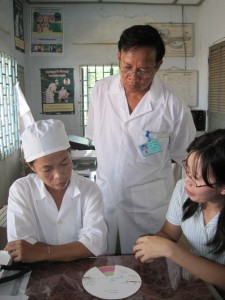
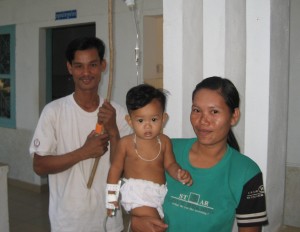 Whether through the iLab SEA’s achievement in improving management of patients with TB or through the quicker detection and treatment of malaria infections or the development of national health facility registries, the lessons we’ve learned on this journey can and are being applied globally.
Whether through the iLab SEA’s achievement in improving management of patients with TB or through the quicker detection and treatment of malaria infections or the development of national health facility registries, the lessons we’ve learned on this journey can and are being applied globally.